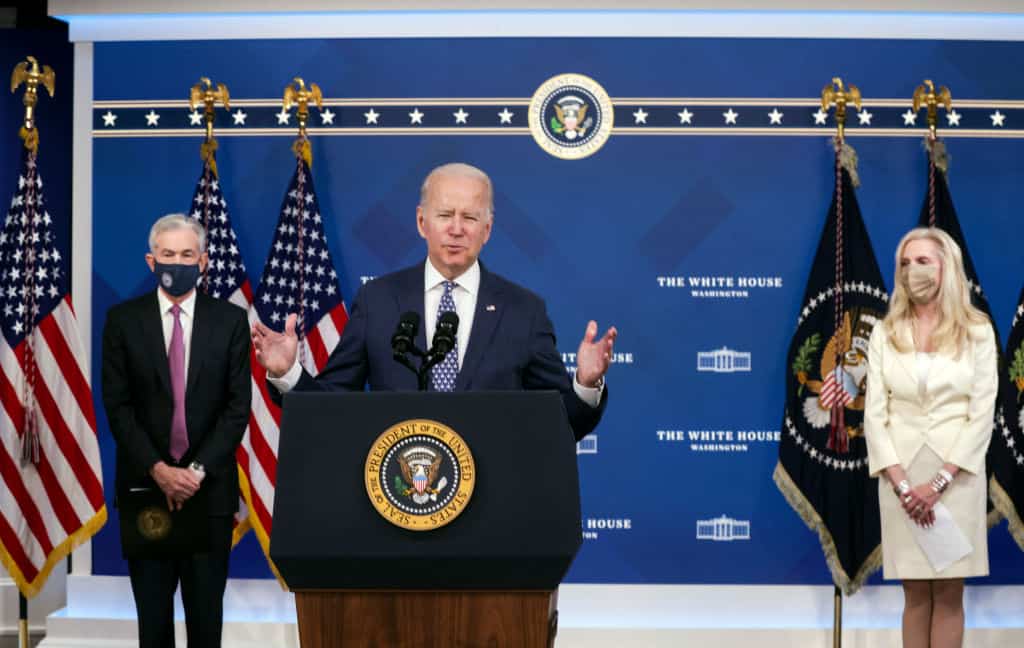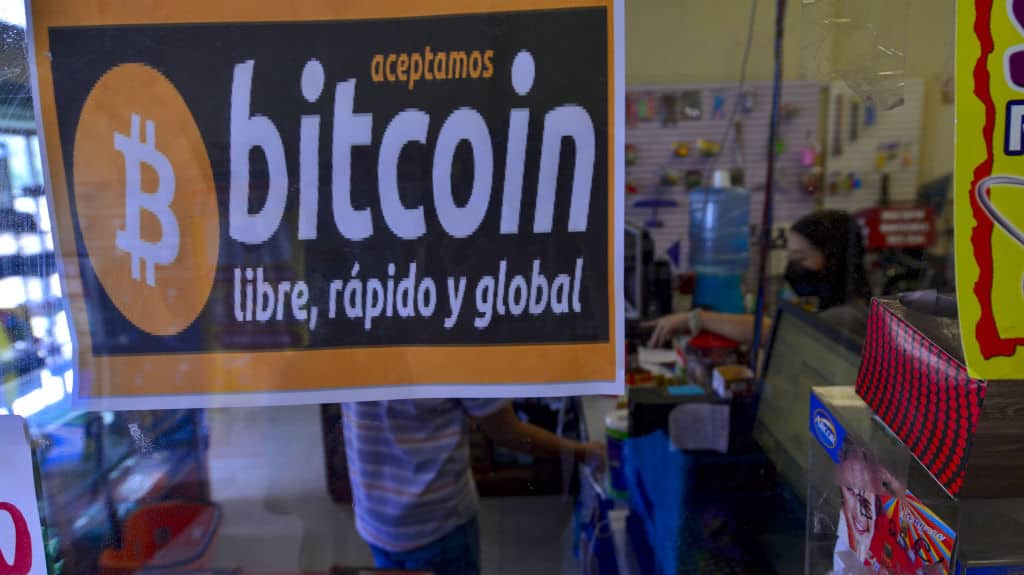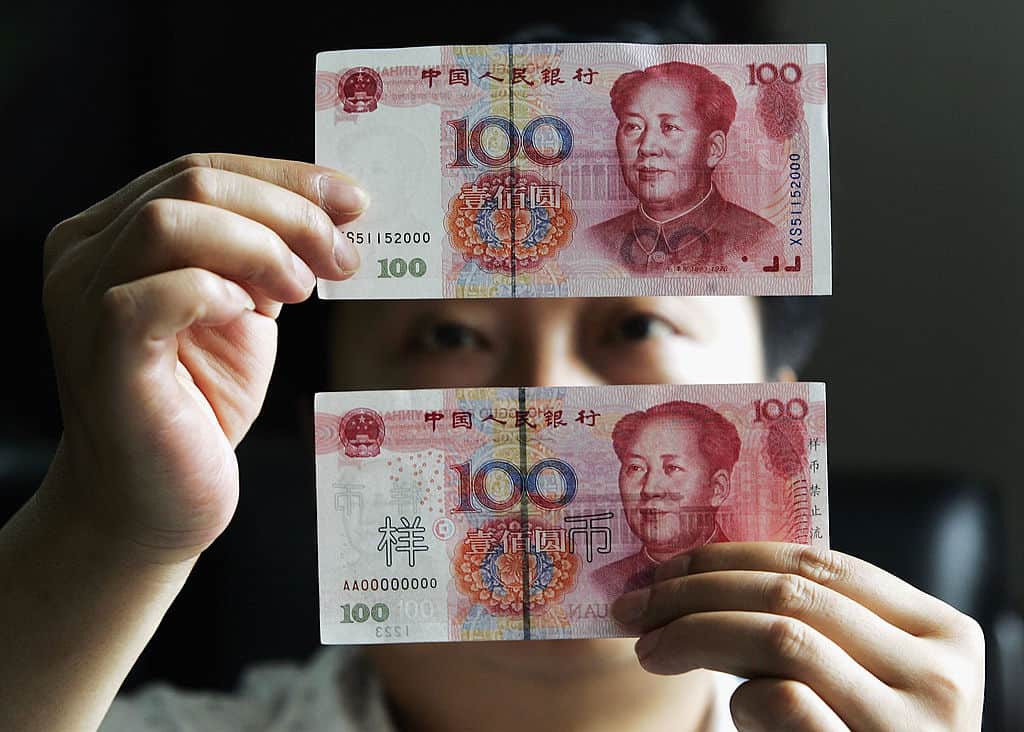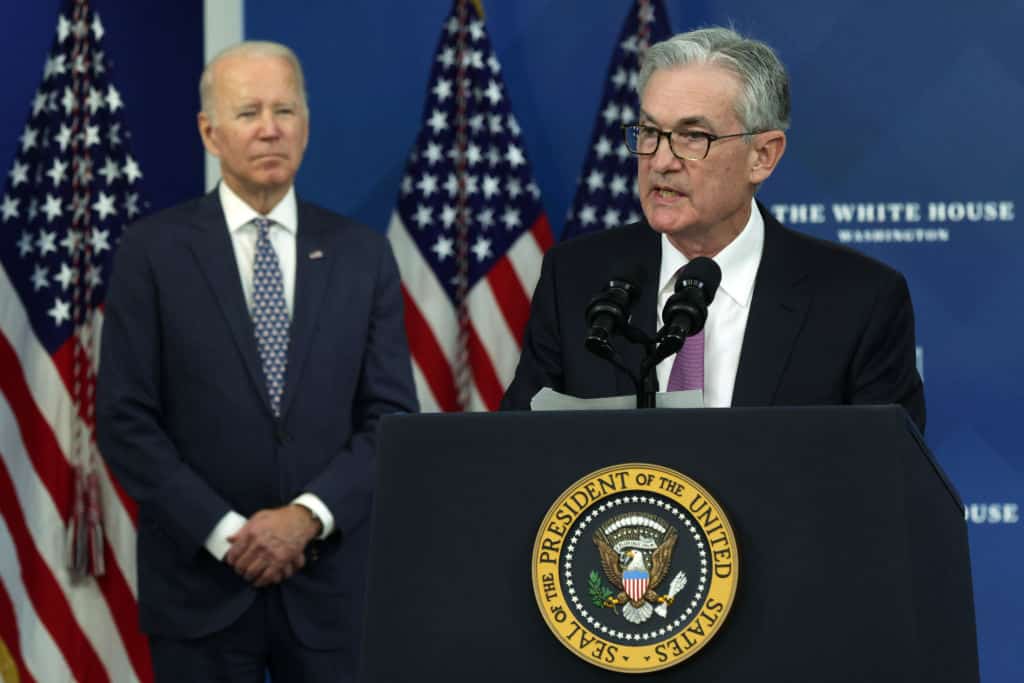In this issue
- Crypto and Jerome Powell: More of the same?
- El Salvador: Volcanic concerns
- China’s digital yuan: Brazen scammers
From the Editor’s Desk
Dear Reader,
Many of you in North America will this week be celebrating Thanksgiving. Many may be feeling a little less than thankful, however, as crypto prices remain range-bound, down from the giddy highs of last month.
Some may also be discouraged by the reappointment of a crypto-skeptic to the top job at the Federal Reserve. Jerome Powell’s second term at the helm of the U.S. central bank means the Fed will retain a boss whose dislike of cryptocurrencies is well-documented.
Yet there’s a bright spot for crypto enthusiasts. The Fed’s first order of business as the year draws to a close will be grappling with accelerating inflation, compelling it to push up interest rates, which should boost the appeal of cryptocurrency as a hedge against a depreciation of the U.S. dollar and other fiat money.
And although the re-nominated Fed chief has been cautious about the development of a digital dollar, Lael Brainard, picked as the Fed’s vice chair, is well-known for her support for a U.S. central bank digital currency (CBDC), which could help still-hesitant investors overcome lingering doubts about cryptocurrencies.
No crypto-hesitancy has been on display in the Bitcoin test-bed nation of El Salvador, which this week announced the creation of “Bitcoin City,” a built-from-scratch town funded by BTC bonds and run on geothermal energy, which is also used to power some Bitcoin mining in the tiny Latin American country.
Nor have we seen anything like hesitation at China’s central bank as it continues racing ahead of the West — and, most notably, far ahead of the U.S. — in developing its digital currency.
However, Beijing’s e-CNY juggernaut has recently encountered an unwelcome twist on its road to rollout, with some fraudsters attempting to cash in as the new currency gains traction.
The problems are minor. But as the crypto market feels a touch of winter, any setbacks for China’s new CBDC may at least give American digital currency enthusiasts discouraged by the U.S.’s lack of progress on a homegrown CBDC a sense of Schadenfreude, if not actual gratitude, just in time for Thanksgiving.
Thanks to our dear readers, as always.
Until the next time,
Angie Lau,
Founder and Editor-in-Chief
Forkast.News
1. Time for thanks — or more Fed turkey?

By the numbers: Jerome Powell — over 5,000% increase in Google search volume.
Jerome Powell appears certain to serve a second term as chairman of the Federal Reserve, having been nominated for the U.S. central bank’s top job by President Joe Biden. The president nominated Lael Brainard as the Fed’s vice chair, putting an end to speculation that she would take over the reins from Powell.
- Like Powell, Brainard has previously voiced concerns over the counterparty and financial stability risks associated with private cryptocurrencies such as Bitcoin. However, while Powell’s comments on a digital dollar have been accompanied by hostility toward private cryptocurrencies and stablecoins, Brainard has advocated the development of a U.S. central bank digital currency (CBDC) for its economic and societal benefits, such as improving access to the financial system. She noted more than a year ago growing momentum behind the creation of a digital greenback after Facebook — now renamed Meta — embarked on a journey to pursue the development of its own digital currency once named Libra, now renamed Diem.
- Under Powell, the Fed cut interest rates to near-zero in March last year as the Covid-19 crisis began to unfold. Powell’s chairmanship of the central bank also just last month saw a 6.2% year-on-year surge in the consumer price index, the biggest increase in inflation in more than 30 years.
- The specter of inflation has gained increasingly widespread recognition as having helped to buoy Bitcoin as a store of value and an inflation hedge.
Forkast.Insights | What does it mean?
Under Powell, the Federal Reserve’s stance on crypto — and the creation of an American CBDC — has been distinguished by an attitude of caution.
He has demurred on developing a native digital currency, leaving the private sector to do much of the legwork, and has taken a dim view of the crypto industry, saying earlier this year that it was little more than a “vehicle for speculation.”
Meanwhile, China has sprinted ahead with pilot programs and is expected to roll out a fully-fledged version of its digital yuan during the Winter Olympics, which Beijing is hosting in February. It has also banned all other cryptocurrencies and cracked down on the entire digital asset industry as part of its efforts to ensure the primacy of its CBDC.
But as Powell prepares for a second term at the Fed, he appears to be softening his stance on crypto. In recent comments on stablecoins, he appears to have shifted from hostility toward a preference for regulation. He has even described them as akin to unregulated money-market funds or bank deposits — a marked departure from his previous characterization of cryptocurrencies as purely speculative assets.
Whatever one’s views on cryptos in general and stablecoins in particular may be, Powell is right to be cautious about letting completely loose an industry that so far has regarded regulation as more like a noose than a leg up.
2. What’s that sulfur smell?

By the numbers: Bitcoin City — 5,000% increase in Google search volume
El Salvador, the first country in the world to adopt Bitcoin as legal tender, is pioneering another world first — building a development named Bitcoin City at the base of a volcano in the country’s southeast. The new city, located in the shadow of the Conchagua volcanic peak, will be funded by Bitcoin bonds issued on blockchain technology firm Blockstream’s Liquid Network, a sidechain of the Bitcoin network. The estimated cost of the project is 300,000 Bitcoins (around US$17 billion).
- Bitcoin City will run on geothermal energy generated from the volcano, like an ongoing Bitcoin mining pilot at a geothermal power plant.
- Speaking at a weeklong event promoting Bitcoin in the country, Blockstream chief strategy officer Samson Mow claimed that the move would position El Salvador as “the financial center of the world.”
- The International Monetary Fund has taken a more sober view of the Salvadoran government’s plan to put Bitcoin at the center of the country’s economy, this week releasing a statement laden with warnings relating to Bitcoin’s volatility and risks to consumer protection, financial integrity and stability.
Forkast.Insights | What does it mean?
El Salvador’s embrace of Bitcoin has so far been a very local affair, with many reports focusing on uptake — or lack thereof — in the nation of 6 million people. That all changed with the announcement of Bitcoin City.
The government of President Nayib Bukele has been on a debt-fuelled spending spree that last year pushed its dollar-denominated debt-to-GDP ratio to more than 90%, far above the low-70% range in which it had remained stable during the previous five years. The value of that debt plunged on news of the planned Bitcoin bond issuance, falling to its lowest level ever, as investors pondered whether the bond sale would cut the country off from a financing deal with the International Monetary Fund.
Bukele’s government had been in talks with the IMF over US$1.3 billion of financing, but it appears that it has all but closed the door to any such deal through its decision to bet its future on Bitcoin.
“Given Bitcoin’s high price volatility, its use as a legal tender entails significant risks to consumer protection, financial integrity, and financial stability,” a spokesperson for the IMF said on Monday. “Its use also gives rise to fiscal contingent liabilities.”
The challenge ahead for El Salvador is whether it can keep its economy afloat during its transition to Bitcoin, or whether creditors will simply pull the plug on the country’s ambitious crypto experiment.
3. Chancers in China

China’s e-CNY rollout has run head-on into the reality of a get-rich-quick mentality, with police in Inner Mongolia having busted a tele-scam involving more than 8 million yuan (US$1.25 million). Authorities also claimed that the suspect had been involved in e-CNY-related money laundering for an overseas fraud ring.
- “The entire point of CBDC is to crack down on fraudulent money conveyance. Why criminals aren’t aware of that yet is surprising to me,” Shanghai-based fintech consultant Richard Turrin told Forkast.News. “All Chinese criminals should be aware that e-CNY is the last place you should put stolen money!”
- At least seven digital yuan-related fraud cases have emerged across China, including in Xinmi, Jiangsu, Fujian, Guizhou, Hubei and Hunan.
- The official launch of e-CNY is expected to coincide with the upcoming Beijing Winter Olympics in February.
Forkast.Insights | What does it mean?
In the 18th century, English philosopher Jeremy Bentham came up with a revolutionary design for a prison that allowed a single person to observe all of its inmates simultaneously. He called it the Panopticon, a name derived from the Greek word “panoptes” meaning “all-seeing.”
China’s digital yuan — e-CNY — is Beijing’s attempt to create a digital version of an all-seeing eye. Literature on the state digital currency has made it abundantly clear that it’s designed to be a tool for the authorities to use to observe and stamp out activities they deem to be illegal or undesirable. In Bentham’s day, the Panopticon’s guard house was to be shielded by one-way glass, preventing prisoners from knowing whether they were being watched or not, thus forcing them to behave as though they were under constant, pervasive surveillance.
It seems, however, that China’s digital yuan isn’t quite having the same effect, which could mean one of two things — either that the Communist Party’s totalizing surveillance is working perfectly, catching criminals in the act, or that the country’s criminal fraternity is unfazed by it. That would highlight a more fundamental problem — that criminals keep engaging in criminal behavior, even when they’re being watched.
Bentham never saw his invention come to life. Instead, in his later years, he critiqued power and control and how prone it was to abuse more broadly. Had he seen China’s 21st-century solution to total surveillance, he might be asking those same questions.




